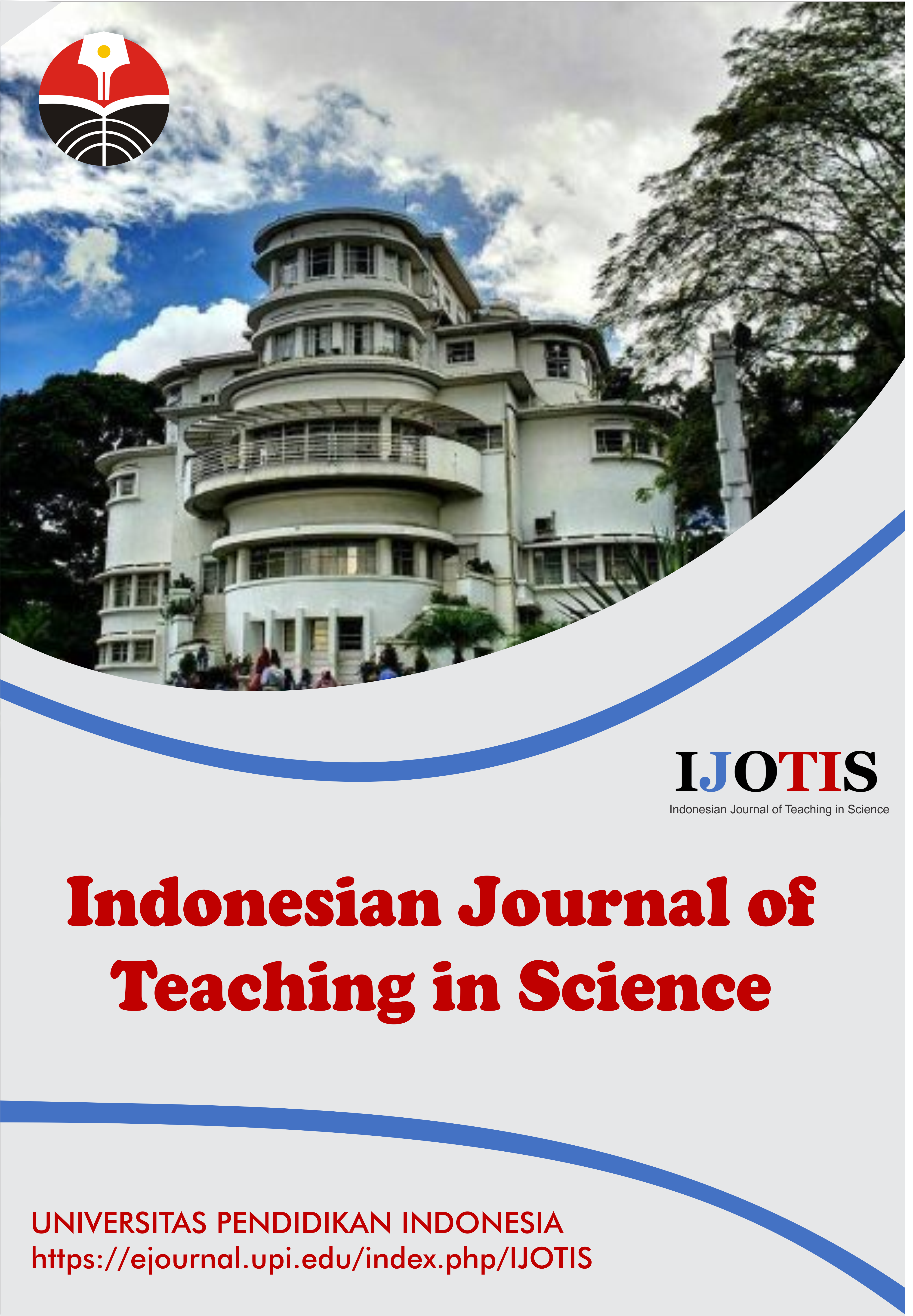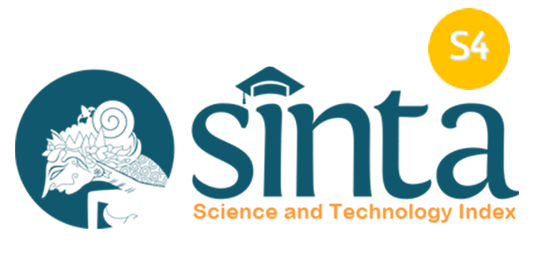Lecturers’ Efficacy and Readiness towards Utilization of ICT for Academic Research in College of Education
Abstract
Keywords
Full Text:
PDFReferences
Akinoso, S. O. (2023). Motivation and ICT in secondary school mathematics using unified theory of acceptance and use of technology model. Indonesian Journal of Educational Research and Technology, 3(1), 79-90.
Anh, D. H. M. (2022). Factors affecting satisfaction on online education on students digital teaching page in Ho Chi Minh City, Vietnam. Indonesian Journal of Multidiciplinary Research, 2(1), 179-186.
Arciosa, R. M. (2022). Information communication technology (ICT)-based instructional software and its effectiveness in teaching high school geometry. Indonesian Journal of Teaching in Science, 2(1), 51-60.
Bolaji, H. O. and Adeoye, M. A. (2022). Accessibility, usability, and readiness towards ict tools for monitoring educational practice in secondary schools. Indonesian Journal of Multidiciplinary Research, 2(2), 257-264.
Bolaji, H. O., Jimoh, H. A. (2023). Usability and utilization of ICT among educational administrators in secondary students in public school. Indonesian Journal of Educational Research and Technology, 3(2), 97-104
Bowling, A., Bond, M., Jenkinson, C., and Lamping, D. L. (1999). Short form 36 (SF-36) health survey questionnaire: Which normative data should be used? Comparisons between the norms provided by the omnibus survey in Britain, the health survey for England and the Oxford healthy life survey. Journal of Public Health, 21(3), 255-270.
Cope, C., and Ward, P. (2002). Integrating learning technology into classrooms: The importance of teachers' perceptions. Journal of Educational Technology and Society, 5(1), 67-74.
Cox, A. (1999). Power, value and supply chain management. Supply Chain Management: An International Journal, 4(4), 167-175.
Daramola, F. O. (2023). Utilization of ICT resources for teaching among some selected lecturers in colleges of education in Kwara state. ASEAN Journal of Educational Research and Technology, 2(1), 1-10.
Dwiana, O., Muktiarni, M., and Mupita, J. (2022). Improved information literacy of elementary school students about living pharmacies through information and communication media (ICT). ASEAN Journal of Science and Engineering Education, 2(3), 193-198.
Erben, T., Hildebrandt, H., Lerchster, M., Hudelot, P., Benjamin, J., Van W. L., Schrabback, T., Brimioulle, T., Cordes, O., Dietrich, J. P., Holhjem, K., Schirmer, M., and Schneider, P. (2009). CARS: The CFHTLS-archive-research survey-i five-band multi-colour data from 37 sq. deg. CFHTLS-wide observations. Astronomy and Astrophysics, 493(3), 1197-1222.
Jadhav, P., Gaikwad, H., Patil, K. S. (2022). Teaching and learning with technology: Effectiveness of ICT integration in schools. ASEAN Journal of Science Education, 1(1), 33-40
Jaffer, S. N., and Czerniewicz, L. (2007). The role of ICTs in higher education in South Africa. International Journal of Education and Development using Information and communication, 3(4), 131-142.
James, P. T. (2008). Academic Staff Perceptions of ICT and eLearning: A Thai HE Case Study. Turkish Online Journal of Educational Technology-TOJET, 7(4), 36-45.
Shah. S., S. (2022). Teaching and learning with technology: Effectiveness of ICT integration in schools. Indonesian Journal of Educational Research and Technology, 2(2), 133-140.
Tok, B. R., and Sora, M. (2013). The perspective of emerging integrating technology (ICT) in learning and teaching. International Journal of Information and Education Technology, 3(2), 282-285.
Vajargah, K. F., and Azadmanesh, N. (2010). Application of ICTs in teaching and Learning at the Universit level. The Turkish Online Journal of Educational Technology, 9(2), 33-39.
DOI: https://doi.org/10.17509/ijotis.v3i1.50774
Refbacks
- There are currently no refbacks.
Copyright (c) 2022 Universitas Pendidikan Indonesia

This work is licensed under a Creative Commons Attribution-ShareAlike 4.0 International License.
Indonesian Journal of Teaching in Science (IJoTIS) is published by Universitas Pendidikan Indonesia (UPI)
 Indonesian Journal of Teaching in Science
Indonesian Journal of Teaching in Science



